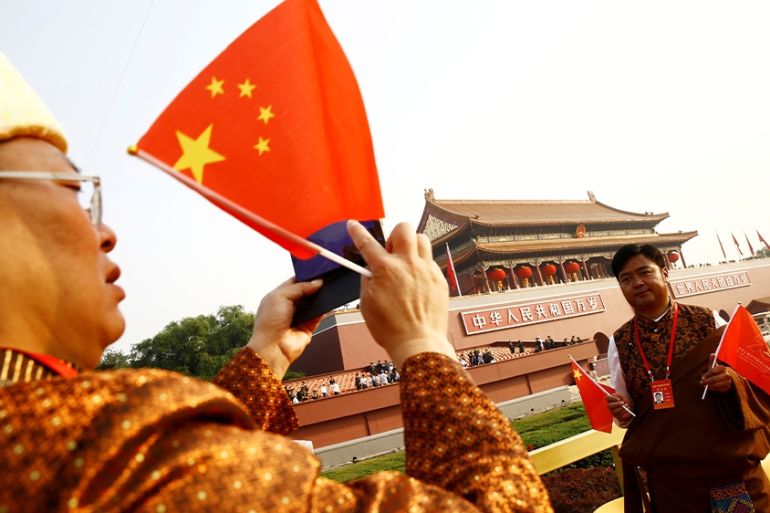China’s economy 70 years on: By the numbers
China’s rapid growth has boosted industrialisation and created billionaires, but inequality is now a growing concern.

For a related story on the progress of the Chinese economy, read China’s economy 70 years on: A tale of two women.
In the seven decades since Mao Zedong founded the People’s Republic of China, the country has gone from being one of the world’s weakest economies to one of its strongest. The country is marking the anniversary on Tuesday.
Keep reading
list of 4 itemsThirty years waiting for a house: South Africa’s ‘backyard’ dwellers
Photos: Malnutrition threatens future Afghan generations
From prisoner to president in 20 days, Senegal’s Diomaye Faye takes office
In the 1960s, China‘s gross domestic product (GDP) per capita lagged behind not just high-income nations, but also countries such as Cambodia, Kenya and Sierra Leone, according to World Bank data.
Today, it has grown to become the world’s second-largest economy after the United States as of end-2018 and is set to come out on top by 2030, according to a report by consultancy firm PriceWaterhouse Coopers.
“By the end of 2018, GDP per capita in China rose to $9,732, surging by 180 times over that of 1952,” the report said.
Although it still ranks 80th in the world in terms of GDP per capita – and is far behind the US which is 6.4 times higher – the gap has narrowed significantly over the past 67 years since China began recording GDP statistics, PWC noted.
China’s economic growth accelerated mostly due to reforms in the late 1970s led by then-Communist Party leader Deng Xiaoping. He lowered trade barriers, allowed market forces to determine prices and boosted investment.
“Deng’s motivations were driven by the recognition that the planned-economy model, along with political instability, had left China weak economically and decades behind in terms of economic development,” Diana Choyleva, Chief Economist at Enodo Economics told Al Jazeera.
“The only way to avoid more economic distress and political upheaval was to instigate China’s opening up to the rest of the world and to start introducing market forces.”
In 1979, China re-established diplomatic relations with the US and joined the World Trade Organization in 2001, a key catalyst for growth, said Choyleva.
Economic growth took off over the next decade, leading to the industrialisation of China’s economy and the growth of its services sector.
Another characteristic that has marked China’s economic rise is the growth of private firms, which were virtually nonexistent prior to 1978. While state-owned enterprises are still a large contributor to China’s economic engine, private firms make up more than half its GDP.
Parallel to the rise of private enterprise is the growing prominence of the Chinese billionaire. Names like Jack Ma of Alibaba and Pony Ma of Tencent (who are not related) have become synonymous with corporate success not only in China but also globally.
They have not been alone, as a growing number of Chinese billionaires are clinching spots among the world’s richest people.
Between 2015 – when the Hurun Report first ranked China’s wealthiest – and 2018, the number of Chinese billionaires among the top 100 richest people in the world has almost doubled to 13 from seven.
However, inequality has also been on the rise in China.
In research published by the London School of Economics earlier this year, French economist Thomas Piketty and two colleagues said: “By our estimates, the share of national income earned by the top 10 percent of the population has increased from 27 percent in 1978 to 41 percent in 2015, while the share earned by the bottom 50 percent has dropped from 27 percent to 15 percent.”
According to Enodo’s Choyleva, China’s business model of investment and export-led growth must move to one that is driven by domestic consumption.
“The Communist Party knows this but the problem is that such a fundamental shift takes time and the transition will inevitably lead to slower growth,” she said.
Still, failing to adopt these much-needed structural changes could force the country’s leadership towards changes that will be “even more painful”, Choyleva said.